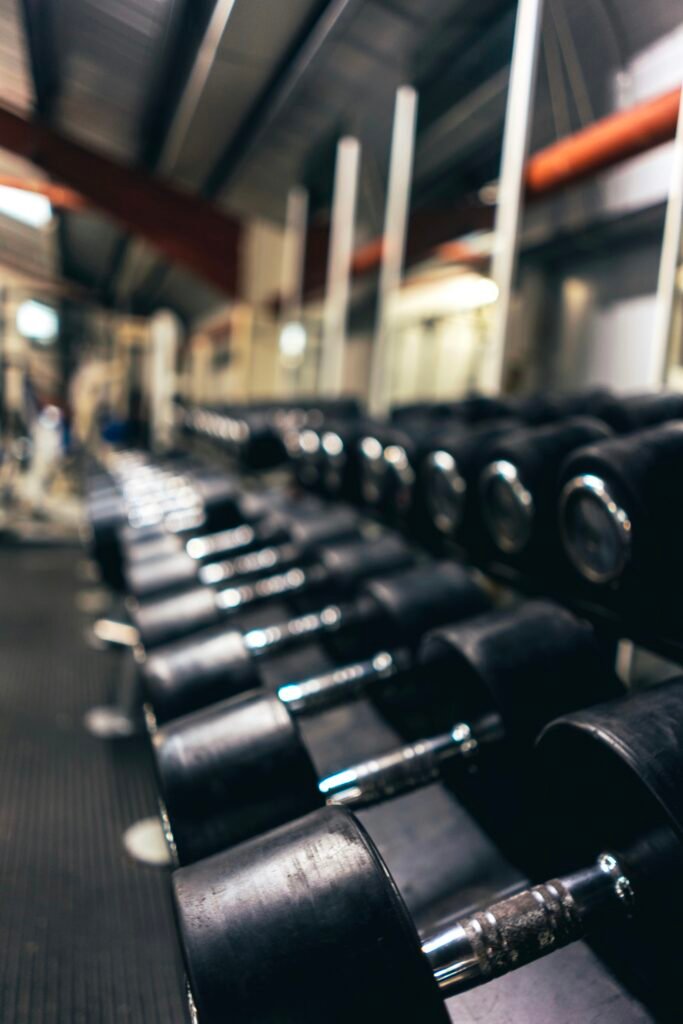How To Improve Your Fitness Fast
Are you looking to improve your fitness quickly and effectively? Whether you’re a beginner starting your fitness journey or someone looking to take your workouts to the next level, there are strategies you can implement to see results in a short amount of time. In this article, we will explore various tips and techniques to help you improve your fitness fast. Let’s get started!

Setting Realistic Goals
Setting realistic fitness goals is essential to achieving success in your fitness journey. By setting goals that are achievable within a reasonable timeframe, you can stay motivated and focused on your progress. Start by defining specific, measurable, achievable, relevant, and time-bound (SMART) goals that are tailored to your fitness level and desired outcomes. Whether your goal is to lose weight, build muscle, or improve endurance, having a clear roadmap will help you stay on track and see results faster.
Example:
“Setting a goal to run a 5K in under 30 minutes within the next six weeks is a specific and achievable goal that can help improve your cardiovascular fitness and endurance.”
Incorporating High-Intensity Interval Training (HIIT)
High-Intensity Interval Training (HIIT) is a popular workout technique that involves short bursts of intense exercise followed by brief periods of rest or lower-intensity activity. HIIT workouts are known for maximizing calorie burn, improving cardiovascular fitness, and boosting metabolism in a short amount of time. Incorporating HIIT into your fitness routine can help you see quick improvements in strength, endurance, and overall fitness levels.
Example:
“Try adding a HIIT workout to your routine 2-3 times a week. A 20-minute HIIT session that alternates between sprints and recovery periods can be a quick and effective way to improve your fitness.”
Prioritizing Strength Training
Strength training is a crucial component of any fitness routine, as it helps build lean muscle, increase metabolism, and improve overall strength and endurance. Including strength training exercises in your workout regimen can help you achieve your fitness goals faster by increasing muscle mass and calorie burn. Focus on compound exercises that target multiple muscle groups, such as squats, deadlifts, push-ups, and rows, to maximize your workout efficiency and see results in a short amount of time.
Example:
“Incorporate strength training exercises into your routine 2-3 times a week. Aim to work different muscle groups each session to ensure balanced strength development and avoid overtraining.”
Balancing Cardio and Strength Training
Finding the right balance between cardio and strength training is key to improving your overall fitness level efficiently. Cardio exercises, such as running, cycling, or swimming, help improve cardiovascular health, burn calories, and enhance endurance. Strength training, on the other hand, builds muscle, boosts metabolism, and increases functional strength. By combining both cardio and strength training in your workout routine, you can achieve a well-rounded fitness program that targets all aspects of your fitness goals.
Example:
“Alternate between cardio and strength training sessions throughout the week to strike a balance between cardiovascular health, muscle development, and overall fitness improvement.”

Eating a Balanced Diet
A well-balanced diet plays a significant role in improving your fitness and overall health. Fueling your body with nutrient-dense foods that support your fitness goals can help enhance your performance, recovery, and results. Focus on consuming a variety of foods that are rich in protein, healthy fats, complex carbohydrates, vitamins, and minerals to fuel your workouts, repair muscle tissues, and boost energy levels. Avoid processed foods, sugary beverages, and excessive amounts of unhealthy fats and sugars that can hinder your progress and slow down your fitness improvements.
Example:
“Incorporate lean proteins, whole grains, fruits, vegetables, and healthy fats into your meals to provide your body with the necessary nutrients for optimal fitness performance and recovery.”
Staying Hydrated
Proper hydration is essential for maintaining optimal fitness levels and overall well-being. Water plays a crucial role in regulating body temperature, transporting nutrients, lubricating joints, and removing waste products from the body. Dehydration can lead to decreased exercise performance, fatigue, muscle cramps, and impaired recovery. Make sure to drink an adequate amount of water throughout the day, especially before, during, and after your workouts, to stay hydrated and support your fitness goals.
Example:
“Keep a water bottle with you at all times and aim to drink at least 8-10 cups of water per day to stay properly hydrated and maintain peak performance during your workouts.”

Getting Sufficient Rest and Recovery
Rest and recovery are often overlooked but essential components of a successful fitness regimen. Your body needs time to repair muscle tissues, replenish energy stores, and adapt to the physical demands of exercise. Lack of rest can lead to fatigue, decreased performance, increased risk of injury, and hindered progress. Make sure to prioritize sleep, incorporate rest days into your workout schedule, and listen to your body’s signals to avoid burnout and maximize your fitness gains.
Example:
“Ensure you’re getting 7-9 hours of quality sleep each night to support muscle repair, hormone production, and overall recovery from your workouts.”
Tracking Your Progress
Tracking your fitness progress is crucial for staying motivated, accountable, and informed about your results. Whether you use a fitness app, journal, or tracking device, monitoring key metrics such as weight, body measurements, workout performance, and energy levels can help you see improvements, identify trends, and make necessary adjustments to your fitness plan. Celebrate your achievements, learn from setbacks, and use progress tracking as a tool to stay focused on your goals and continue making progress.
Example:
“Take weekly progress photos, record workout details, and track your nutrition intake to assess your progress, identify areas for improvement, and make necessary adjustments to your fitness routine.”
Seeking Professional Guidance
If you’re new to fitness or looking to take your workouts to the next level, seeking professional guidance can help you navigate the complex world of exercise, nutrition, and fitness programming. Consider working with a certified personal trainer, fitness coach, nutritionist, or healthcare provider to create a customized fitness plan that aligns with your goals, preferences, and lifestyle. Professional guidance can provide you with expert advice, personalized support, and evidence-based strategies to help you improve your fitness in a safe, effective, and sustainable manner.
Example:
“Hiring a personal trainer to assess your fitness level, set goals, and design a tailored workout program can provide you with the knowledge, motivation, and accountability needed to succeed in your fitness journey.”
Conclusion
Improving your fitness fast is achievable with the right strategies, mindset, and commitment to your goals. By setting realistic goals, incorporating HIIT workouts, prioritizing strength training, balancing cardio and strength training, eating a balanced diet, staying hydrated, getting sufficient rest and recovery, tracking your progress, and seeking professional guidance, you can take your fitness to the next level and see significant improvements in a short amount of time. Remember to stay consistent, patient, and dedicated to your fitness journey, and the results will follow. Start implementing these tips today and watch your fitness goals become a reality!